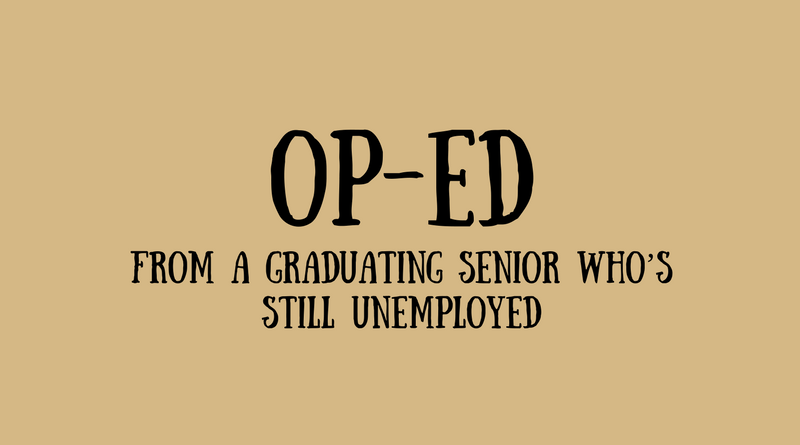By: Sarah Madden, Senior Writer
I’ve lost track of how many times I have bought into the shaming that happens inevitably every spring—the silent shaming of those Wofford seniors who can’t manage to be hired to their dream jobs, and instead settle for working as a barista or a lab tech for a gap year. Over the years I’ve noticed what seemed like countless “second choice jobs” or alternative careers, and assumed that something must be wrong with these people.
This is ridiculous. Heck, half of us started out as bio majors and escaped with our lives, right? Of course some Wofford seniors are going to get to senior year and apply for something totally different than their intended medical school or grad school paths—and some of us won’t get the jobs or the graduate program, for no reason at all except that it just wasn’t meant to be.
Wofford might not have been our first choice. The major(s) we graduate with might not have been what we thought we’d finish up with. Why assume that a classmate is a failure if he or she decides to work for a few years before committing to a massive financial and intellectual burden such as grad school? Or if something nontraditional just makes more sense?
I’m writing this as an English and environmental studies major with no definite post-grad plans AND a horse to take care of starting on May 21st, but I’m not writing in response to anything I’ve felt or received. I’m writing from a place of realizing that finding a real, substantial job is really hard and the Wofford bubble makes it easy to miss this.
As one of the few among my friends looking for a full-time job instead of more debt or schoolwork, I had no idea where to start. My grad school-applying friends knew exactly what to do as early as their junior year, but I was lost. I’ve realized that Wofford prides itself in prepping and facilitating students bound for two fields: graduate or medical schools and the business world—its own beast.
If you’re not in these categories, it’s up to you to make it happen for yourself, because there just isn’t that kind of programming for you. That’s absolutely not to say that there are no resources—the Space actually does help students, for example—but it’s something that’s easy to miss, and it’s something I believe we all need to work on.
It starts with empathy, I believe. It’s discouraging to admit that I don’t have plans yet—especially when Wofford wants to publish my name and “unemployed” right next to peers bound for grad school, med school, an athletic career or other dream jobs. But there’s something important about this openness that I think might help the class of 2018 or 2019 talk about it sooner than I did with my friends.
Maybe there will be classes offered to students outside of grad school applicants about how to find a job, with programming that overcomes its seemingly business-heavy orientation. Maybe my peers will not feel ashamed to talk about second, third and even fourth occupational paths, but will embrace the bigness of our opportunity to join other Terriers in affecting every corner of the workforce—the more random, the better. After all, isn’t that what a liberal arts education prepares us to do?
May we buy into this hopeful stereotype—of the Terrier that is willing to tackle anything, even if it’s not what we expected—and may we cheer on our classmates as they create their own ways.























